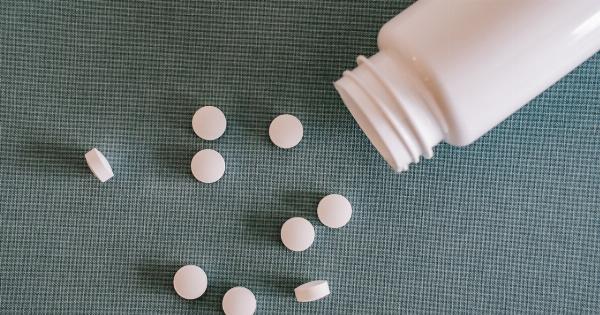Kidney stones are hard deposits that form in the kidneys and can cause severe pain and discomfort. They are made up of minerals and salts, and can vary in size from tiny grains to larger stones.
Kidney stones can affect anyone, but some people are more prone to developing them. Fortunately, there are several steps you can take to prevent kidney stones from forming.
Step 1: Stay Hydrated
One of the most important steps in preventing kidney stones is to stay hydrated. Adequate fluid intake helps dilute the substances in urine that can lead to stone formation.
Drinking enough water not only reduces the risk of kidney stone formation but also helps in flushing out any existing small stones before they grow larger. Aim to drink at least 8 cups (64 ounces) of water or other fluids throughout the day.
Step 2: Limit Oxalate-rich Foods
Oxalate is a naturally occurring substance found in many plant-based foods. When oxalate combines with calcium in the urine, kidney stones can form. Limiting intake of oxalate-rich foods can help prevent the formation of these stones.
Foods high in oxalate include spinach, rhubarb, beets, peanuts, and chocolate. While you don’t need to completely eliminate them from your diet, moderation is key.
Step 3: Eat Calcium-rich Foods
Contrary to popular belief, consuming calcium-rich foods may actually help prevent kidney stones. Calcium binds with oxalate in the intestines, reducing the amount of oxalate absorbed by the body and subsequently lowering the risk of stone formation.
Good sources of dietary calcium include dairy products, such as milk, yogurt, and cheese, as well as leafy greens like kale and broccoli.
Step 4: Reduce Sodium Intake
High sodium intake can increase the excretion of calcium in urine, leading to the formation of kidney stones. Limiting your sodium intake can help decrease the risk of stone formation. Avoid processed foods, fast food, and excessive salt in cooking.
Instead, flavor your meals with herbs, spices, and other low-sodium alternatives.
Step 5: Moderation is Key with Animal Protein
Consuming excessive amounts of animal protein, such as red meat, poultry, and seafood, has been linked to an increased risk of kidney stones.
Animal protein can increase the excretion of calcium and uric acid in the urine, both of which can contribute to stone formation. It is important to enjoy animal protein in moderation and balance it with plant-based protein sources.
Step 6: Choose a Healthy Diet
A well-balanced diet rich in fruits, vegetables, whole grains, and lean proteins can help prevent kidney stones. This type of diet provides essential nutrients while minimizing the risk of stone formation.
Including foods like citrus fruits, which are high in citrate, can help prevent certain types of kidney stones.
Step 7: Monitor your Sodium and Urine pH Levels
Regularly monitoring your sodium intake and urine pH levels can help you keep track of your kidney stone risk. High urinary sodium levels and acidic urine can promote the formation of certain types of kidney stones.
Working with your healthcare provider to test urine samples or using at-home testing kits can provide valuable information for prevention strategies.
Step 8: Exercise Regularly
Maintaining a regular exercise routine is beneficial for overall health, including kidney health. Regular physical activity can help prevent obesity, a known risk factor for kidney stones.
Aim for at least 150 minutes of moderate-intensity aerobic exercise or 75 minutes of vigorous exercise each week. Find activities you enjoy, such as walking, swimming, or cycling.
Step 9: Don’t Ignore Underlying Medical Conditions
Some medical conditions, such as obesity, diabetes, and high blood pressure, can increase the risk of kidney stones. It is essential to manage and control these conditions through proper medical care and lifestyle modifications.
Follow your healthcare provider’s recommendations and take any prescribed medications regularly.
Step 10: Avoid Excessive Vitamin C Supplementation
While vitamin C is an essential nutrient, excessive supplementation may increase the risk of kidney stone formation. High doses of vitamin C can be metabolized into oxalate, which can contribute to stone development.
It is best to obtain vitamin C from natural food sources, and if taking supplements, consult with a healthcare professional for appropriate dosage.
Conclusion
Preventing kidney stones involves adopting a holistic approach to kidney health. By following these steps, you can significantly reduce the risk of developing kidney stones.
Remember to stay hydrated, make thoughtful dietary choices, maintain a healthy weight, and monitor any underlying medical conditions. Prioritizing kidney health will contribute to your overall well-being and ensure a healthy functioning urinary system.































